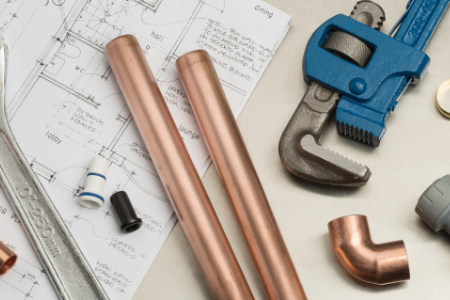 What Are The Most Common Plumbing Problems?
What Are The Most Common Plumbing Problems?
The most common plumbing problems are always clogged drains and toilets, leaky taps and pipes, water heater issues, low water pressure and a running toilet. Each of these problems requires a different solution and we will cover each one of these below.
Having indoor/outdoor plumbing is a god send and has been for several hundred years, you don’t realise how much you rely on plumbing until you start have problems. A dripping tap here, a slow drain there, as your home ages, it natural to have some sort of plumbing issues. Some of those problems are simple enough to DIY yourself. Other problems can come with potential dangers and are best left to a professional. But being aware of the common plumbing problems and solutions helps you know when to get your tools or call a plumber.
CLOGGED DRAINS AND TOILETS
You can spot clogged drains when you see water backing up as you empty a sink or take a shower. For a toilet clog, the signs are often more immediate. Instead of flushing normally, the water backs up in the bowl and may even overflow. Clearing a blockage restores your drains or toilet back to working order with a little DIY work.
What Causes the Problem: Slow or clogged drains can happen when something blocks the drain. In sinks and showers, hair is often the villain, but other items such as a shampoo lid or small toys, may enter the drain and block the pipe. In toilets the problem often comes when something other than dissolvable water enters the system and get flushed. Those solid items cannot move through the pipe, so they stay put, making it difficult or sometimes impossible for water to flow past the item and down the pipes.
How to Fix Clogged Drains and Toilets: Always start with a plunger to help you remove the item that is doing the clogging. A plunger works on both toilets and drains. The simplest of plumbing tools helps to loosen clogs using air pressure. Place the end of the plunger over the drain and move it up and down to help create a suction. If you can move the item close enough use tweezers or piles to help grab the item and remove it from the drain. Using some sort of chemical cleaner offers you another solution to remove the blockage if you can’t remove it with a plunger.
How to Avoid Clogging Drains and Toilets: Prevent toilet clogs by only flushing dissolvable waste products down your toilet. If something falls into your toilet, get it out instead of flushing it down the drain. In your shower use a hair catcher over the drain so loose strands don’t collect inside the drainpipe.
When to Call a Plumber: Call a plumber for your clogged toilet if you can’t easily remove the blockage yourself. Another time to call a plumber is when you keep getting repeated clogs in the same drain.
LEAKY TAPS AND PIPES
Leaking taps and pipes are common plumbing problems in houses. Dripping taps are more of a nuisance and a waste of money than a plumbing emergency, but those drips add up quickly- fixing the leaks in your home could save you 10% on your water bill. A tap leaking one drip per second adds up to over 3,000 gallons of water every year, the equivalent of 180 showers. Nationwide, plumbing leaks can account for over 1 trillion gallons of water. Leaking taps are easy to spot since the water physically drips out of the tap when it is turned off. You can even hear the drips.
Leaking pipes can cause major problems if you don’t catch the problem from the start. You often spot leaking pipes after a period of time when you start seeing puddles below the pipes or hear a dripping.
What Cause the Problem: A dripping tap occurs when the washer that helps to form the seal on the tap get damaged or degraded over time. Damage may include tearing, dislodging, or stiffening. When this occurs, the washer no longer seals tightly, allowing small amounts of water to drip over time. Again, over time the valve seat might corrode or wear. If your pipes are leaking the most likely place to check is the joints. Leaks may appear due to high water pressure, deterioration, or other damage.
How to Fix leaky Taps and Pipes: Replacing a seal in a tap is a DIY job, but replacing the washer is easier with specialist tools so you might want to call a plumber. Leaky pipes might be a simple job, you can solve this by just tightening the joint, but on the flip side you might need to change the U-joint then you will be better of calling in a professional.
When to Call a Plumber: Call a plumber if you think the job is too complex for you, it doesn’t matter how small, it makes sense, and you don’t have to deal with the clean up.
WATER HEATER PROBLEMS
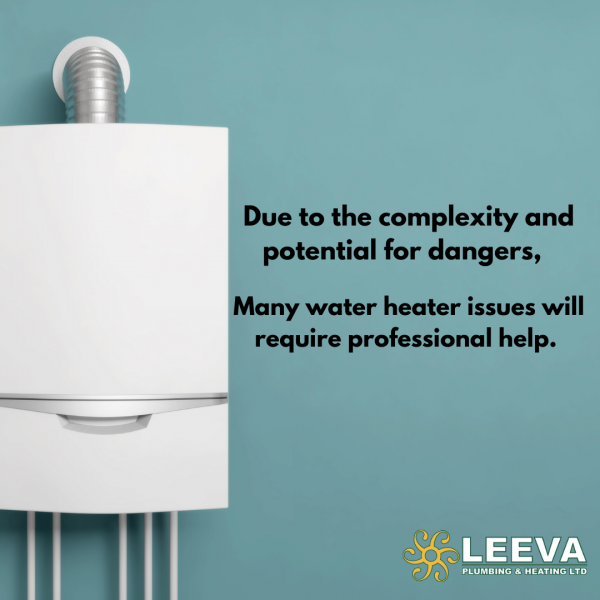 Your water heater works hard behind the scenes of your home, providing hot water for your taps and appliances. But sometimes it works a little too hard, leading to problems that could require a professional service.
Your water heater works hard behind the scenes of your home, providing hot water for your taps and appliances. But sometimes it works a little too hard, leading to problems that could require a professional service.
What Cause the Problem: Water temperature issues are among the most common problems you’ll encounter with water heaters. The 3 main problems that are likely to occur are 1. Cold Water 2. Water is Warm but not hot enough 3. Water is too hot.
- Cold Water: Cold water often caused by lack of power, a faulty thermostat or faulty heating element.
- Water Is Warm: But Not Hot Enough: If your water isn’t getting hot enough the problems might be an undersized water heater, mixed hot and cold connections or faulty heating element or thermostat.
- Water Is too Hot: If your water is too hot then your thermostat is set too high. Check you water heater manual to how to change the temperature on your heater.
How to Avoid Water Heater Problems: Maintaining your hot water heater helps it run efficiently to prevent problems. Check the pressure valve regularly. Flush the tank periodically to remove sediment. Look around the tank occasionally to check for drips and leaks that could indicate a bigger problem.
When to Call a Plumber: Unless the issue is an easy fix like relighting the pilot light or adjusting the water heater thermostat, call a plumber when you have water troubles.
If your water heater issues cause water puddles on your floor, take a few steps to ensure your safety.
Shut of the power to your heater. For an electric water heater, ensure you are completely dry and wear a pair of gloves to shut it off. For a gas water heater, use the shut off valve at the connection point of the unit.
Turn of the water to prevent additional leaking and move any items away from the heater.
If you have any plumbing problems in the Derby, Belper area contact Leeva Plumbing and Heating here If you have any plumbing problems, we provide a reliable professional service to sort your problems.
WANT US TO CALL YOU BACK?
 Click to choose a time & date...
Click to choose a time & date...
Recent Posts
- Down the Drain and Back Again – Plumbing Facts You Didn’t Know You Needed
- Winter Proof Your Home: The Benefits of Pre-Winter Boiler Servicing
- 10 Bathroom Trends for Winter 2025
- A Homeowner’s Guide to Boiler Replacement in Ripley, Belper, and Alfreton
- Thank a Plumber: 10 Plumbing Facts That’ll Make You Appreciate Your Flush
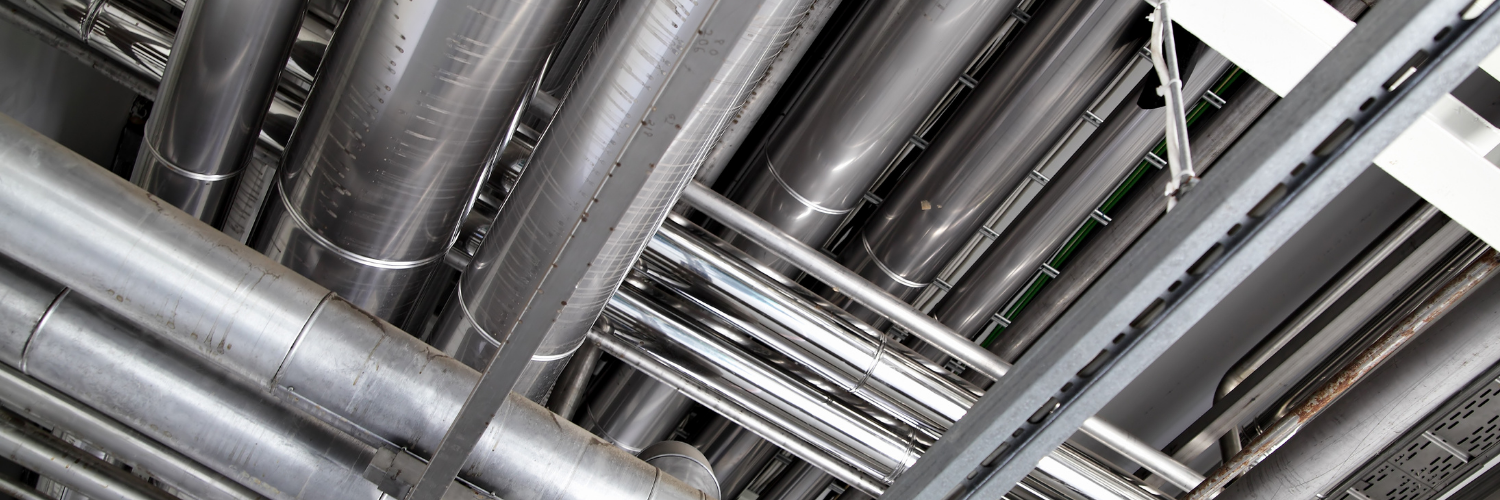
Need a reliable plumber or heating engineer?
Our experienced and helpful team are always happy to help
PHONE
(01773) 749 713
sales@leevaplumbing.co.uk
WEBSITE
www.leevaplumbing.co.uk
ADDRESS
Unit 6.1 Derwent Business Park,
Heage Road,
Ripley
DE5 3BZ



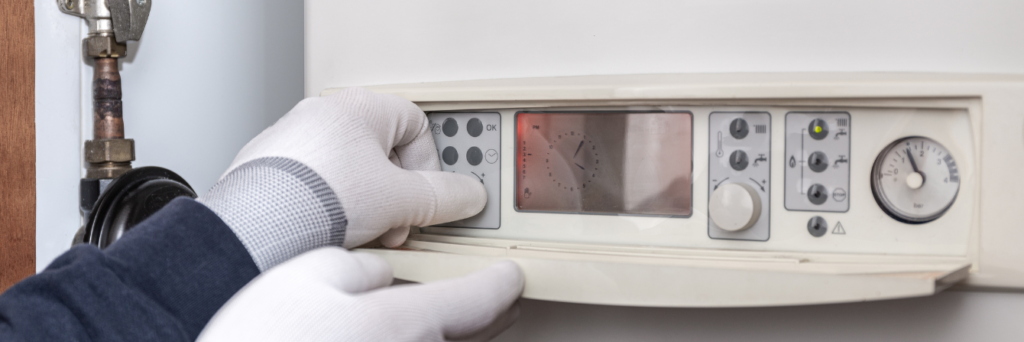
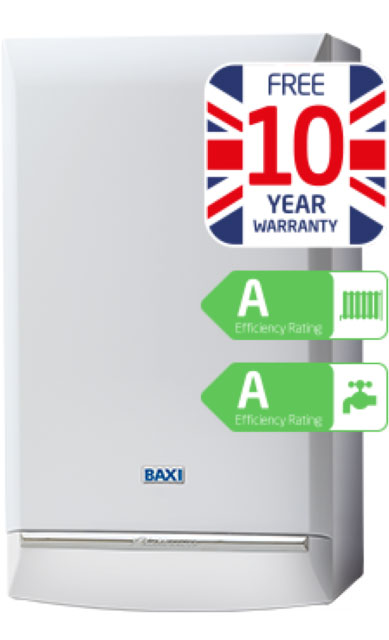 Fully Installed Baxi Boiler
Fully Installed Baxi Boiler